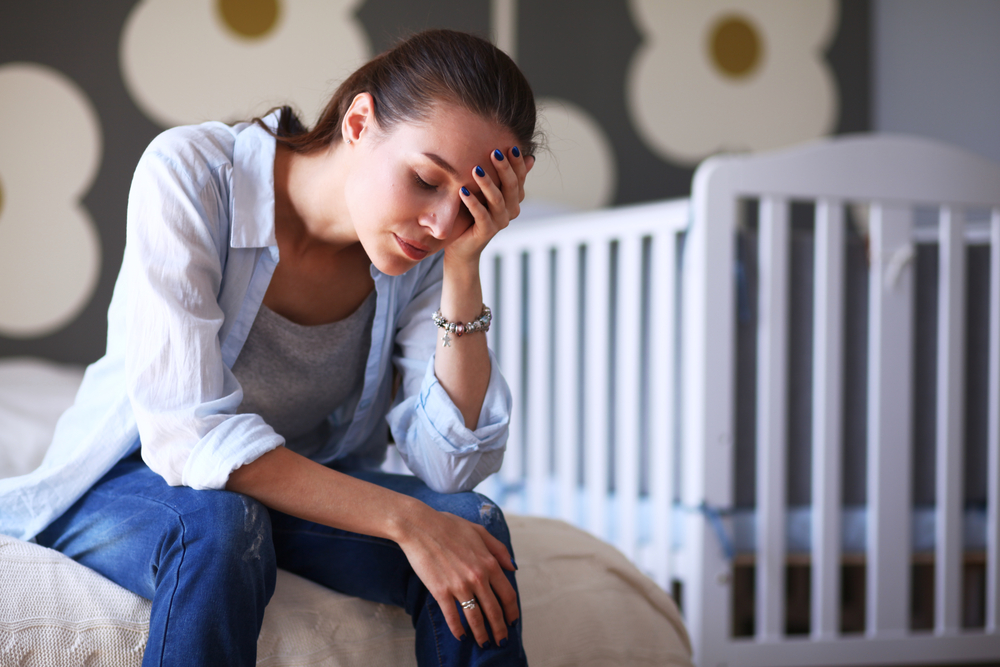
2020 has been a year of isolation and discourse with many people experiencing anxiety and depression at higher levels as a result. Pregnant and postpartum women, or perinatal women, are not immune from feeling the heaviness.
“It seems like there has been quite a rise in perinatal depression and anxiety,” said Brenna McCrummen, M.D., an OB-GYN at Kootenai Clinic.
What mental health professionals like Leanne Elisha, a psychiatric nurse practitioner with Kootenai Behavioral Health, want women to know is these feelings are very common. Pre-pandemic, approximately one in seven women experienced perinatal depression and anxiety, and those numbers are on the rise due to additional stress caused by COVID-19.
“Unfortunately, society has created some unreasonable expectations for what pregnancy, childbirth and motherhood should be like,” Elisha said. “We seem to glamorize it or make mothers feel that they should constantly be glowing, happy, and enraptured with this new baby they have.”
Elisha wants to reassure moms, that is not always the reality. During pregnancy and postpartum, many mothers struggle with anxiety and depression.
What are the signs of perinatal depression and anxiety?
“There are a wide variety of symptoms from mild anxiety, to feeling overwhelmed, to really feeling down and depressed and unable to function,” Dr. McCrummen said.
After giving birth, more than 50 percent of women experience so-called baby blues.
“Those feelings include periods of tearfulness, feeling sad and irritable, and issues with sleep and fatigue.” According to Elisha, “The cause has a lot to do with hormones and sleep disruption.”
Elisha said it becomes concerning when those feelings persist beyond two weeks. In that case, a new mom may be experiencing a form of perinatal mood and anxiety disorders, or PMADs. PMADs covers depression, anxiety, mania, hypomania, and psychosis. If you are experiencing longer-lasting symptoms, it is recommended you reach out to your provider for help.
“Especially when you have really severe interference with sleep, appetite, motivation, feelings of hopelessness or helplessness, and suicidal thoughts,” Elisha said.
What are the treatment options for perinatal depression and anxiety?
If a mother believes she is experiencing a form of PMADs, the first step is to contact your health care provider. That can be an OB, midwife, family physician, or a counselor if you are already seeing one.
Dr. McCrummen said treatment options could range from making changes in your daily life, seeing a counselor, taking medication, or a combination of the three. She reassures there are safe medication options to take while pregnant and breastfeeding.
What can happen if perinatal depression and anxiety go untreated?
“There can be a lot of consequences,” warns Elisha. “Some of them minor, some of them serious.”
Untreated anxiety and depression during pregnancy can cause low birth rate, and increase the possibility of preterm birth. Depression and anxiety left untreated after birth can interfere with breastfeeding, as well as bonding and attachment.
“It can also interfere with the offspring’s language acquisition, and their development of motor skills and social skills,” Elisha said. “The children themselves can also be at an elevated risk of developing anxiety and depression later in life.”
What is your best advice for a new mom navigating motherhood and the pandemic?
While it may look a little different, both Dr. McCrummen and Elisha recommend staying connected to friends and family.
“Via FaceTime, Zoom, distance visits if you can do them safely, but I think that contact in any form is really important,” Dr. McCrummen said. “And just talking to your friends and family and not isolating yourself is huge.”
The resounding message from both experts is clear, if you need help, ask for it. All forms of PMADs are common and treatable. Being in a healthy mental health state is best for you, and it is what is best for your baby.



